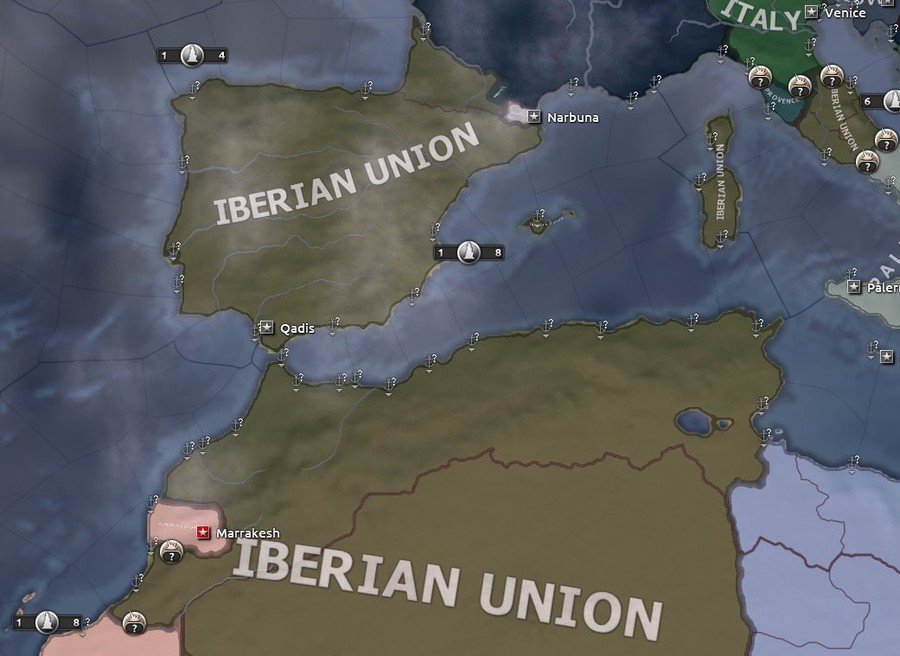Part 112: The Battle of the Maghreb
Chapter 7 — The Battle of the Maghreb — August 1939 to March 1940It had only been a few months since the fighting first began, but the rivals and adversaries had already enjoyed victories and suffered setbacks all across the world, with each side determined to seize the advantage and gain momentum early in the war. So in light of the successful offensive towards the Garrone, Commandant Vernier of the Frankish Realm redeployed hundreds of thousands of soldiers and tripled his strength along the river, determined to bring the Iberian advance to a decisive halt.

That would have to do, for the moment at least, because the Frankish leader was also grappling with a far larger, far stronger foe to the east — the Russian bear.

With winter in sight, the Iberian military command predicted that the war in Europe would quickly devolve into a quagmire, so it was decided that the focus would be shifted towards the southern front for the oncoming season.
Before rerouting his production and redeploying his troops, however, Supreme Leader Mizanur tasked his ministry of infrastructure with restoring the Pyrenaic Wall — the line of fortifications that had fallen into disrepair during the interwar years. If the Franks launched a counter-offensive, then this wall would be Iberia’s first line of defense, so it had to hold.

Once the orders were given, the Supreme Leader turned his attention southward, where the Straits of Gibraltar had just been captured by Iberian forces.

The Straits had been caught in the crossfire of countless conflicts waged between Qadis and Marrakesh, so the Moroccans would undoubtedly seek to retake them as soon as possible.
That had to be prevented, of course, so Mizanur appointed a veteran pilot and experienced commander in Rusim Khataan as his Chief of the Airforce, with strict orders to dominate Maghrebi skies and rain fire on Berbers.

And under Khataan’s leadership, that was precisely what happened, with half of Iberia’s fighter force quickly overwhelming the Moroccans in the air, allowing 300 CAS planes to provide constant support to ground troops whilst around 100 bombers prioritised strategic bombing.

The redeployment was completed near the end of September, and with their ranks reinforced with another 15 divisions, Supreme Leader Mizanur ordered the Maghrebi Army to advance.

Beyond the Maghreb, Moroccan resistance had crumbled before the Beninese onslaught, with a series of well-coordinated manoeuvres splintering enemy lines and encircling large parts of the enemy army, cornering almost 40 Moroccan divisions along the Ivory Coast.

And even further south, Egyptian armies had similarly surrounded and annihilated several Moroccan divisions in South Africa, whilst Beninese tanks successfully subjugated large parts of the Kongo basin.

The only theatre that saw Almoravid victories was was in the Far East, where the colonies of Usturaliya and Indochina were battling under the flags of Morocco and Francia, with the former successfully expelling their enemies from Australia in the dying days of September.

A pointless victory, with large parts of the continent being barren and useless, but a victory nonetheless. The real battle was being waged across Indonesia, and having occupied Sumatra and Borneo, that was a battle that the Franks were currently winning — but not without facing troubles of their own…

As rumours of this “Warlord of Indochina” began to spread, the ruling council of the Bengal Raj was taking advantage of the recent instability by aggressively expanding to the north, invading and annexing the princedoms of Manipur and Assam over the past three months.


Manipur and Assam had both been guaranteed by Almoravid Morocco, but being embroiled in a globe-spanning war, Marrakesh could only protest these annexations — and it didn’t stop there…
Apparently, the Bengali were also pouring vast sums of money into the Indian resistance, with the defiant and mutinous movement simmering across the width of the Almoravid Raj. Needless to say, this wasn’t the end of Bengali ambitions.
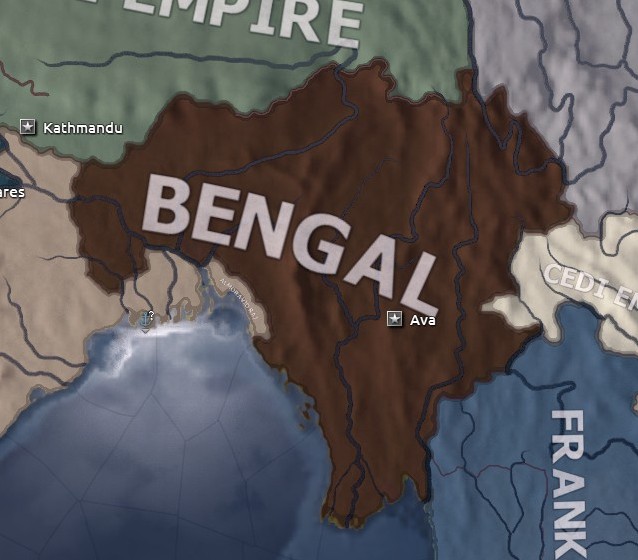
And the Almoravid Sultan wouldn’t have the time or resources to tackle another Indian Uprising, not with the battle of the Maghreb quickly spiralling out of control.
Tiqnu al-Dhib, the commanding general of Iberian forces in North Africa, had managed to cleave the Moroccan army apart in a stunning offensive. With the vast majority of Moroccan troops retreating towards Marrakesh, the rest of the Maghreb was left exposed, so the victory was immediately followed by an invasion into Algeria.
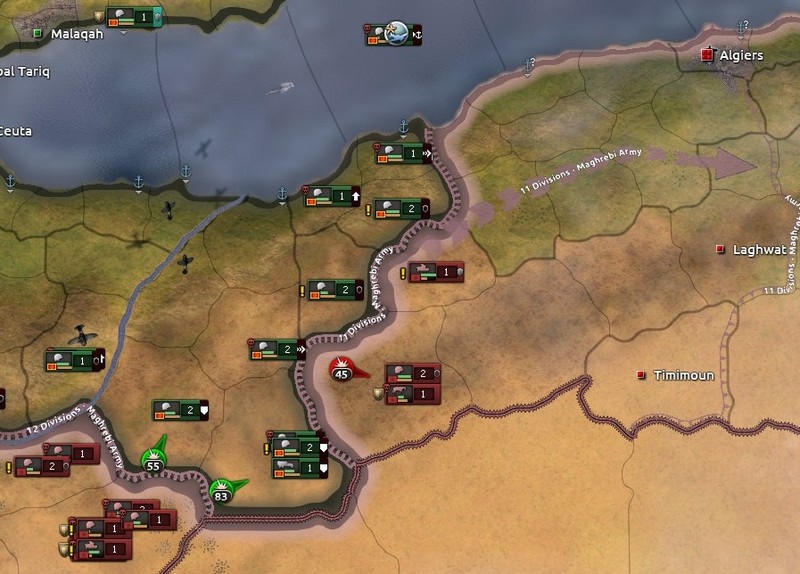
At the same time, the eastern communists had managed to break Egyptian lines and flood into the Levant, with red flags raised above Jerusalem on the 29th of October.

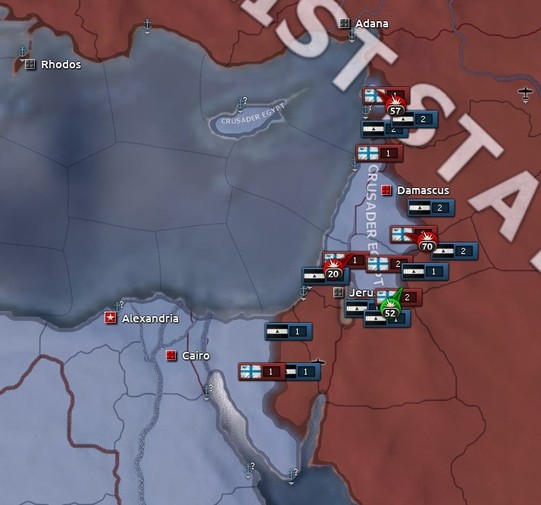
With the communist cause advancing in the east and west alike, Supreme Leader Mizanur began taking steps to secure the Mediterranean, authorising an invasion of Moroccan Sardinia in the early days of November. A fortnight and several thousand casualties later, and the island’s occupation was complete.

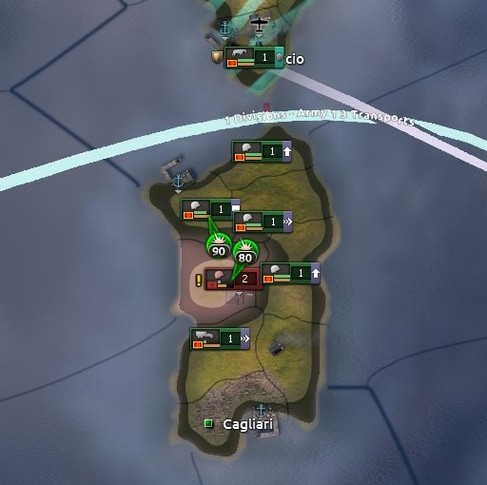
On the 18th of November, meanwhile, the fascist regime of Italy declared their entry into the war by formally joining the Pact of Paris.

This hadn’t been unexpected, of course, but the Supreme Leader was quick to turn the situation to his advantage. Just two days later, Mizanur delivered a speech in which he claimed that the fascists were bent on “over-running the entire Italian peninsula”, and vowed to take pre-emptive actions to ensure that they weren’t allowed to do so…
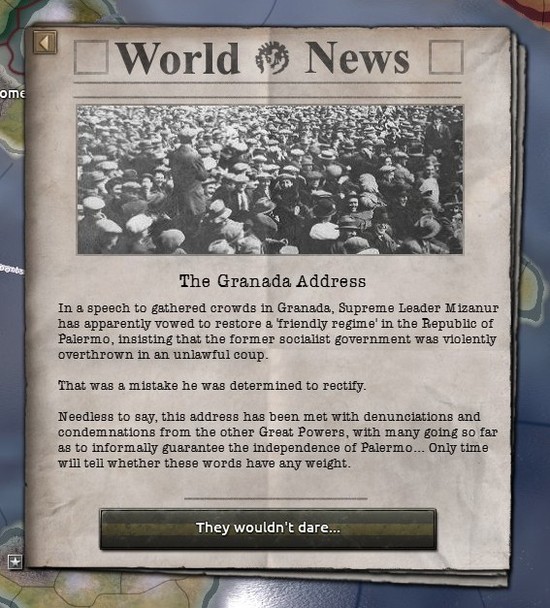
If the Granada Address wasn’t clear enough, then Mizanur’s intentions became crystal a few days later, when the Red Navy launched a series of surprise attacks on Palermo’s armada, crippling their navy in a decisive victory.
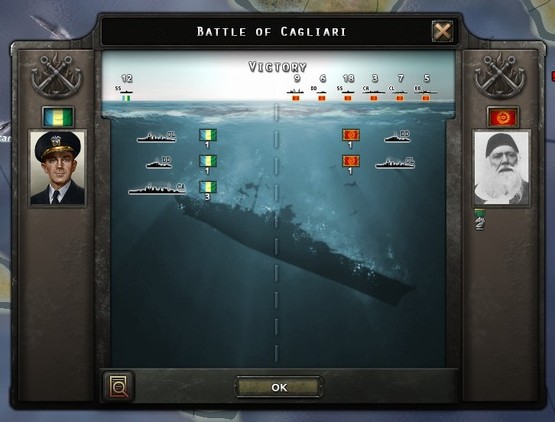
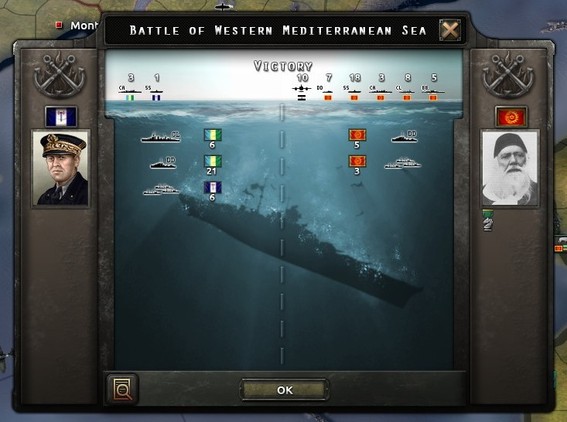
These attacks were severely criticised on the international stage, especially by the Berber Union, but it wasn’t escalated beyond that. Instead, the eyes of the world were turned to the European battlefields, where Frankish armies had just achieved a stunning breakthrough…
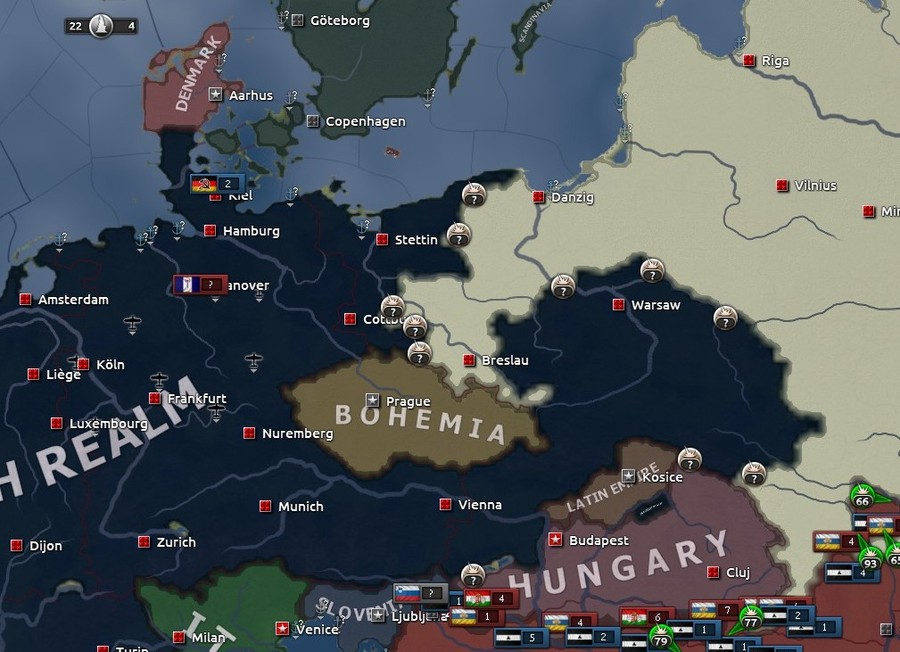
Through the use of unorthodox tactics, Commandant Vernier had managed to outflank Russian forces and seize the Vienna Corridor, with millions of Franks flooding into Poland and Ukraine in the weeks that followed. By the dying days of December, the ambitious offensive was complete and large parts of the Russian army were encircled, dealing a devastating blow to Smolensk.
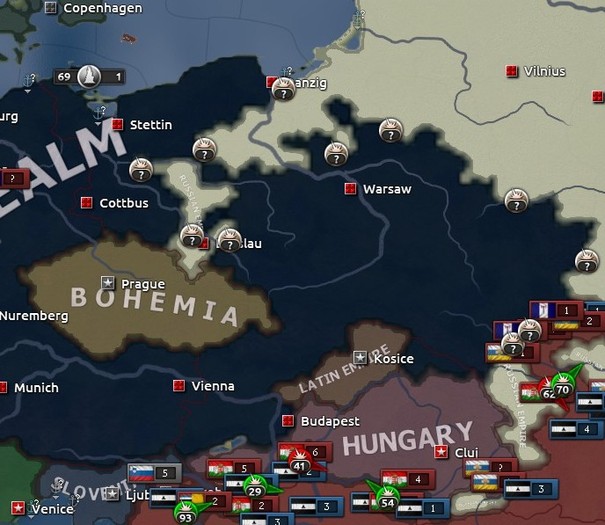
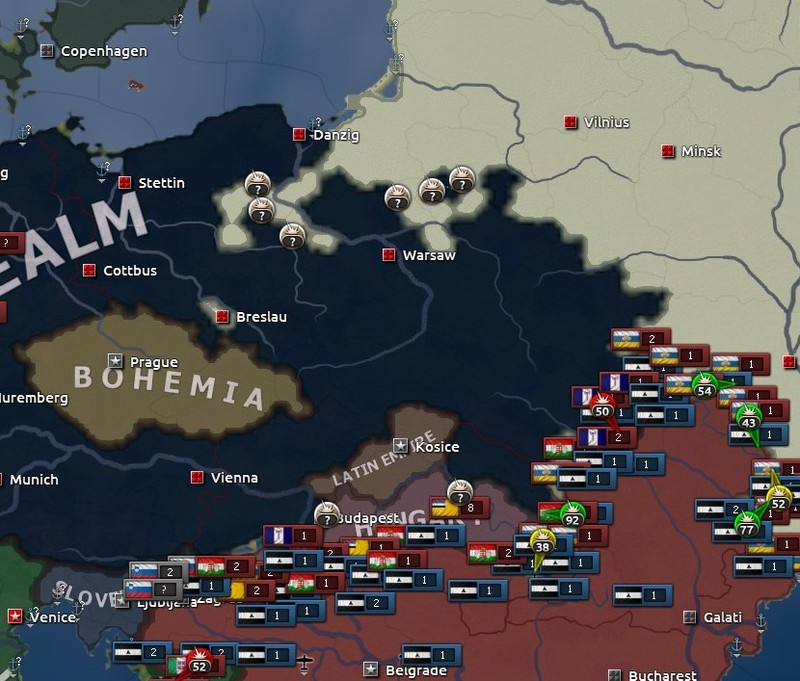
This sudden development took Qadis by storm, especially since Iberian politicians had expected the Russians to emerge victorious, what with their vast industry and unmatched manpower.
Mizanur’s priorities suddenly changed, and he commanded his generals to bring the battle of the Maghreb to a close whatever the cost. Iberian guns had to be turned northward, as soon as possible.
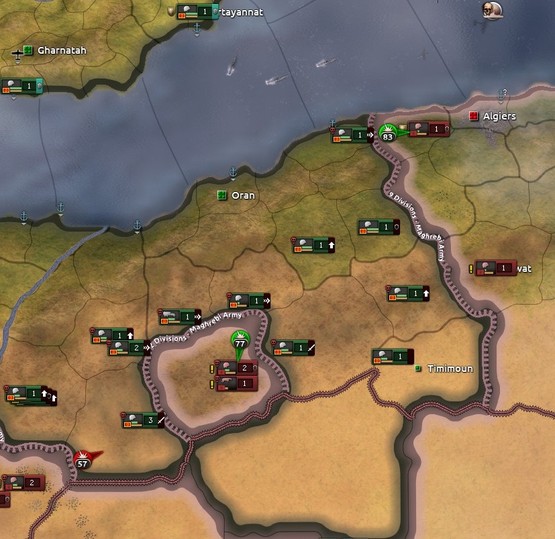
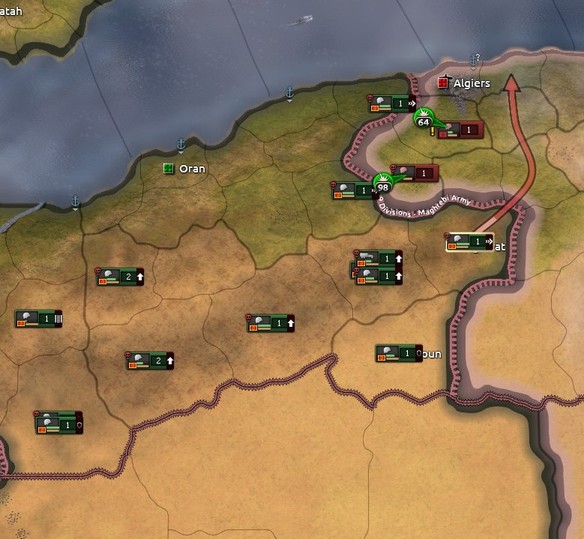
Tiqnu al-Dhib therefore accelerated his plans, capturing Algiers on the 28th of December and seizing Qasantina on new year’s day, but the rest of the Maghreb had already fallen to a combined force of Franks and Egyptians.
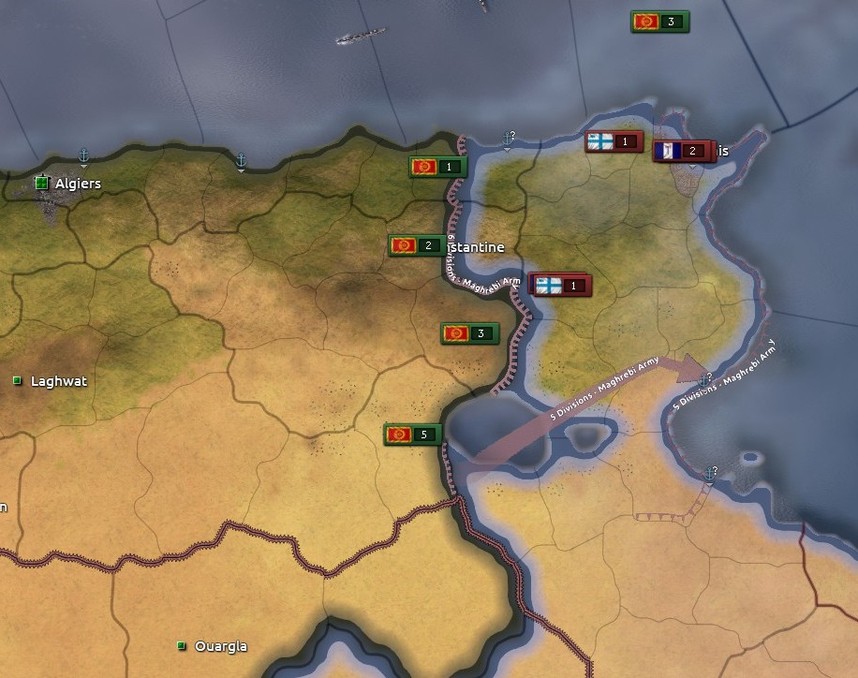
Still, the Iberians held the numerical edge on this front, so they charged eastwards and seized the regional capital in another ruthless offensive. By the end of the first month of 1940, Algeria and Tunis were largely pacified, with Tiqnu al-Dhib pulling back his troops in preparation for the final push towards Marrakesh, leaving just 3 divisions to guard the roads into the Maghreb.
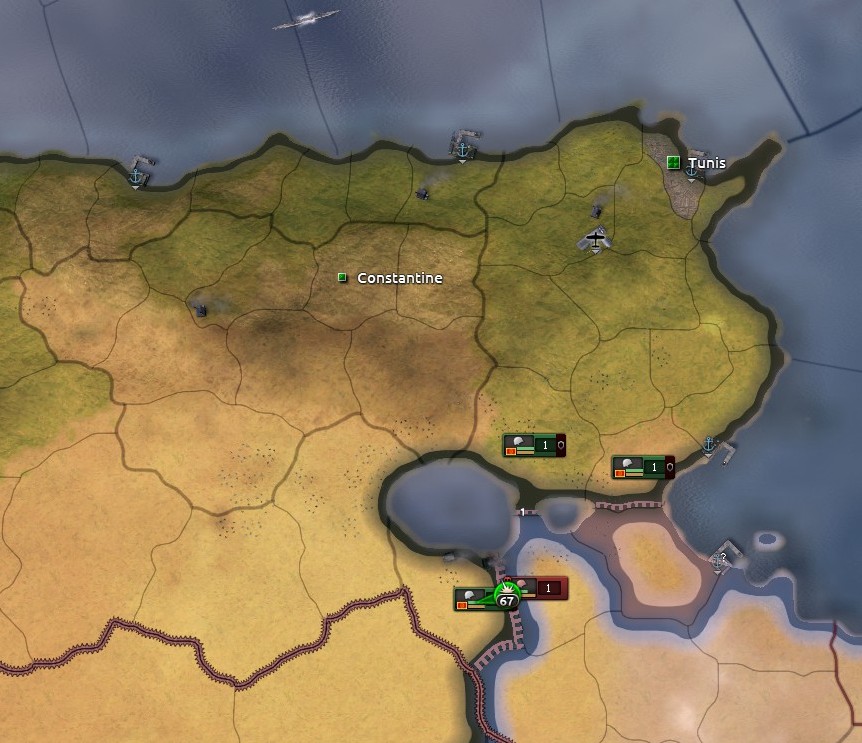
At the same time, Supreme Leader Mizanur kept a close eye on the operations in Palermo, where a naval invasion landed 5 divisions in early February.
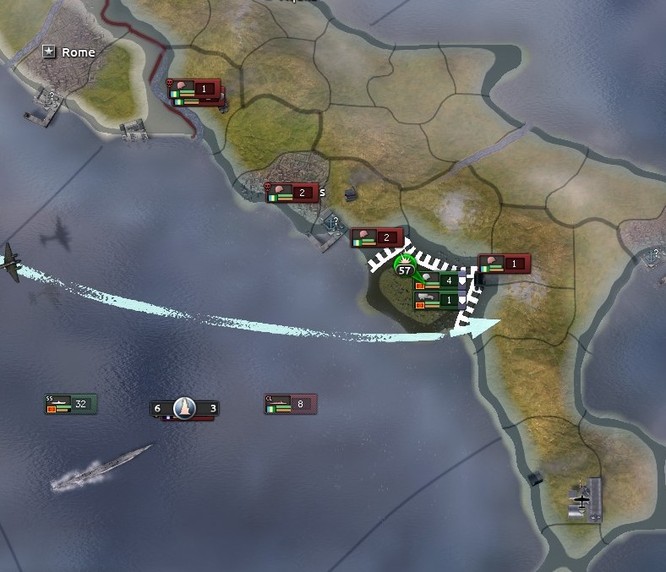
Iberian boots had scarcely touched solid ground before being swamped by Palermo troops, however, forcing them to fight for their very survival on the beaches of Campania. Unfortunately for them, however, this would prove to be nothing more than a diversion…
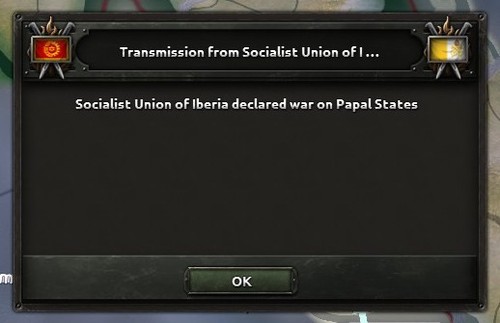
Whilst soldiers were rushed southward to overwhelm the Iberian landing party, a much larger invasion force disembarked in the north, in the territory of the strictly-neutral Papal States…
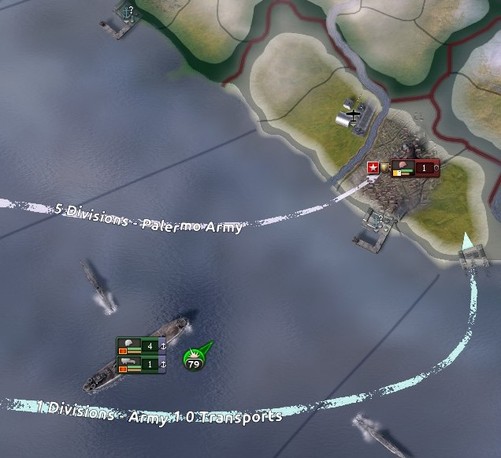
Catching their enemies off-guard, the Iberians quickly overwhelmed and crushed the pitiful resistance, seizing control of Rome and imprisoning the Pope in early February. Once the region was secured, offensives were launched to the north and south alike, igniting the battle of Italy.
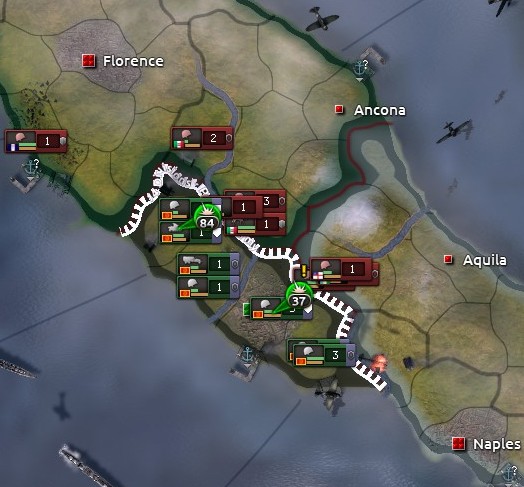
This string of victories was tempered with losses on the seas, unfortunately. Growing increasingly bold and overconfident, the Red Navy was drawn into another battle off the coasts of Sardinia, where Frankish and Italian warships massacred its submarine and destroyer fleets in a crushing defeat.
The navy was quickly withdrawn to Balansiyyah, with repairs and reinforcements underway before week’s end.
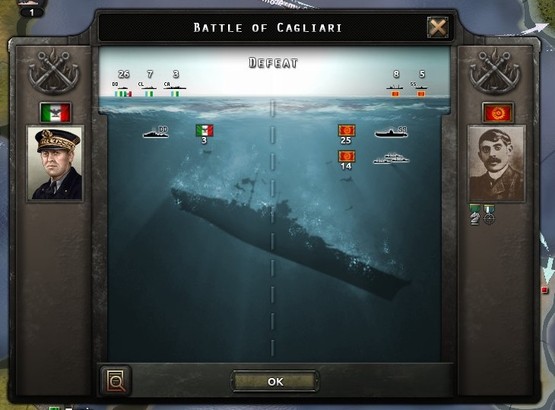
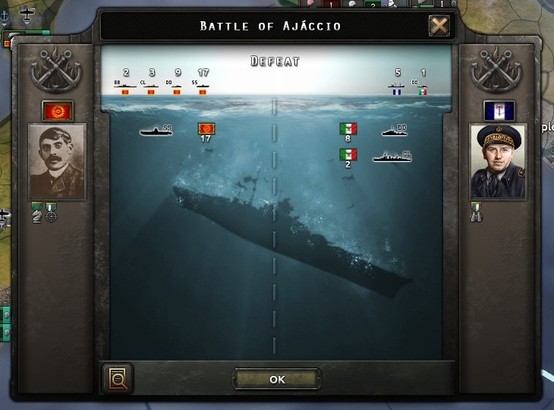
Further east, meanwhile, the battle of the Levant had finally come to an end with the capitulation of Damascus and Beirut. The conclusion of these sieges allowed communist troops to push southward and into the Sinai peninsula, reaching the Suez Canal by the early days of February.
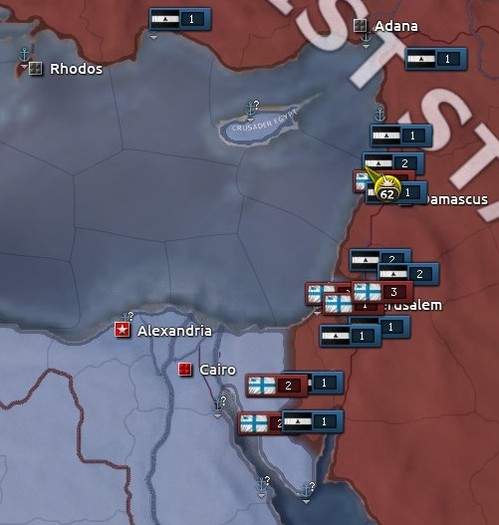
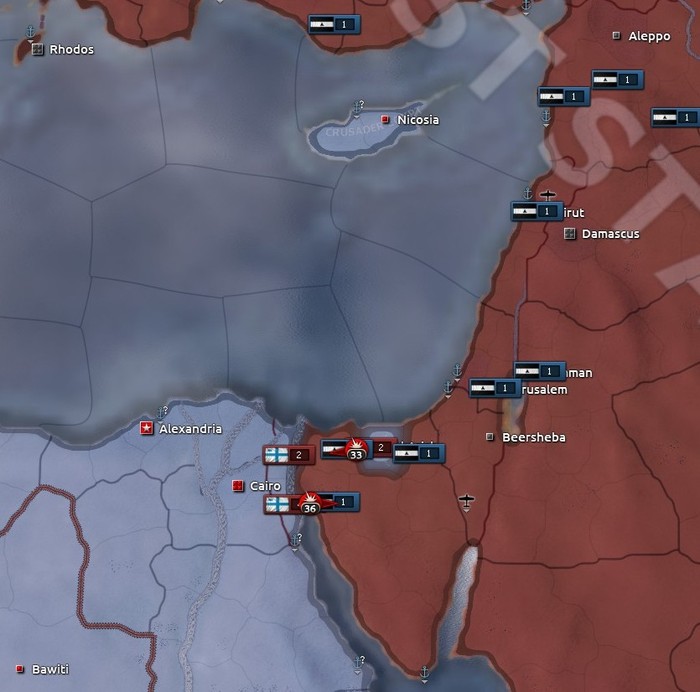
And to the north, the Russian winter had slowed the relentless advance of the Frankish army, to the relief of Qadis. Even so, they had gradually gained ground over the past few months, repelling countless Russian counter-attacks and opening a new front against Belgrade.
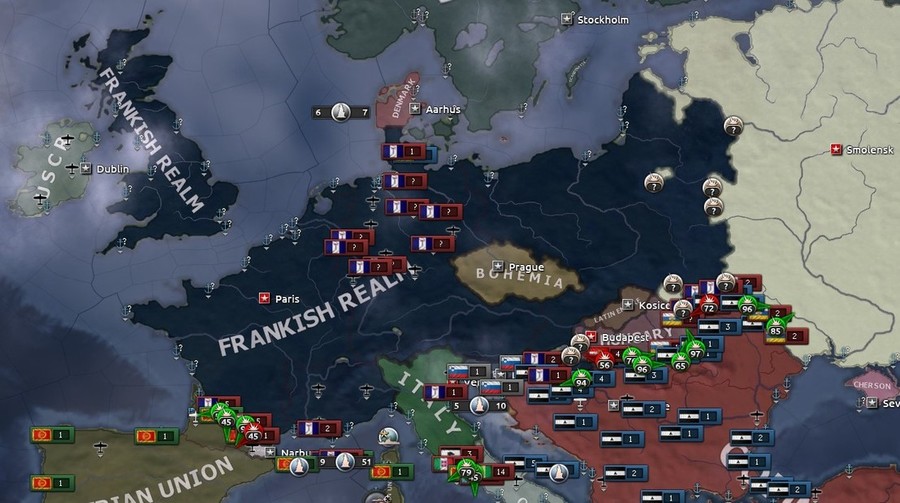
Despite pleas from their allies, the Iberians couldn’t do much about it, not with the better part of their numbers tied down in North Africa. Frankish positions along the River Garonne had been reinforced, so any forays and incursions were met with decisive defeats.
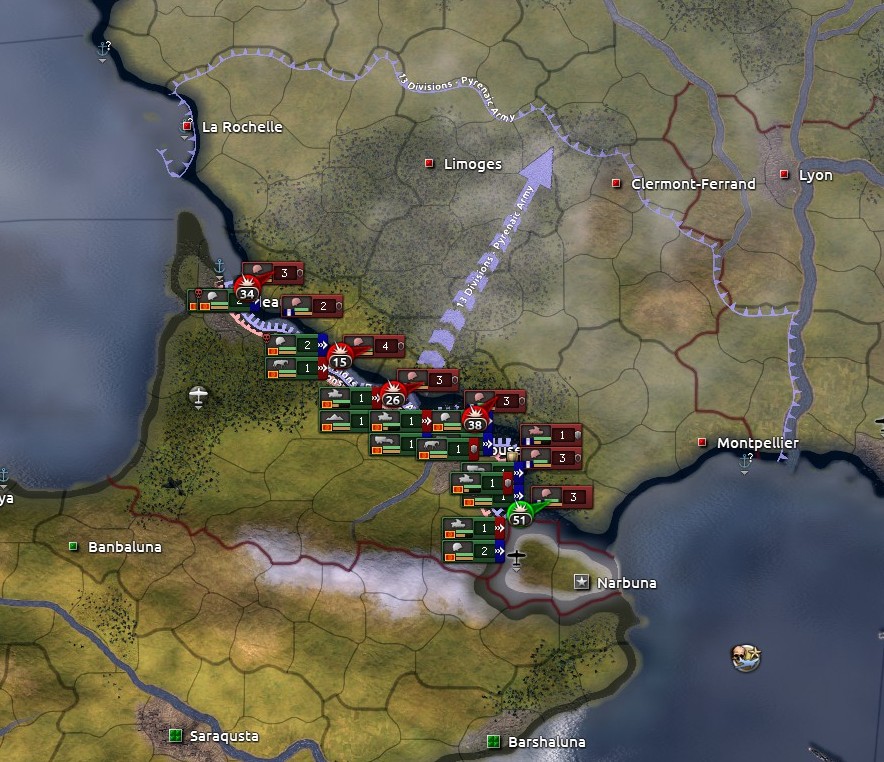
Fortunately, the end of the Maghrebi campaign was finally in sight, with redeployed troops and fresh reinforcements reaching Tiqnu al-Dhib by mid-February.
The Iberians were still outnumbered, but with their control over the skies assured and morale on the rise, their odds were looking good. So on the 23rd of February, the order to advance quickly travelled along the front, and the march on Marrakesh finally began.
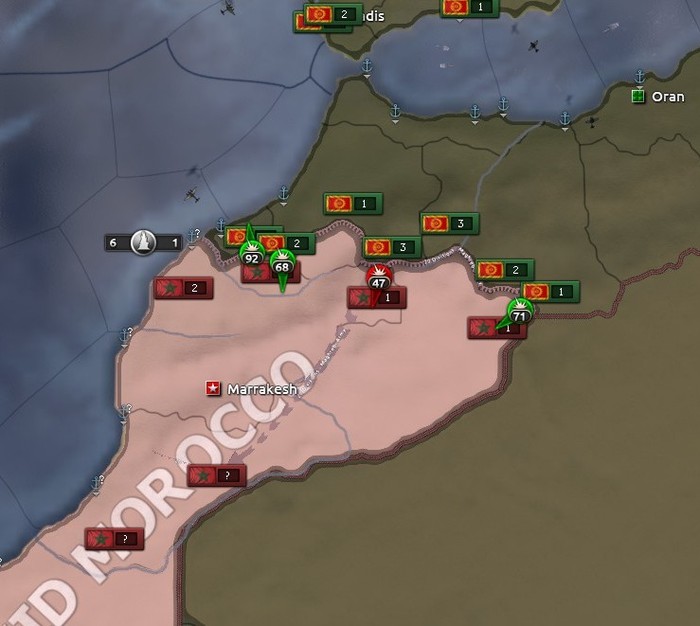
And to the immediate north, the invasion of the Papal States had thrown both Italy and Palermo afoot, allowing the Iberians to gain ground whilst they desperately redeployed. The Iberians held the element of surprise, and making good use of this precious commodity, an ambitious offensive to secure the central region of the peninsula was launched on the 20th of February.
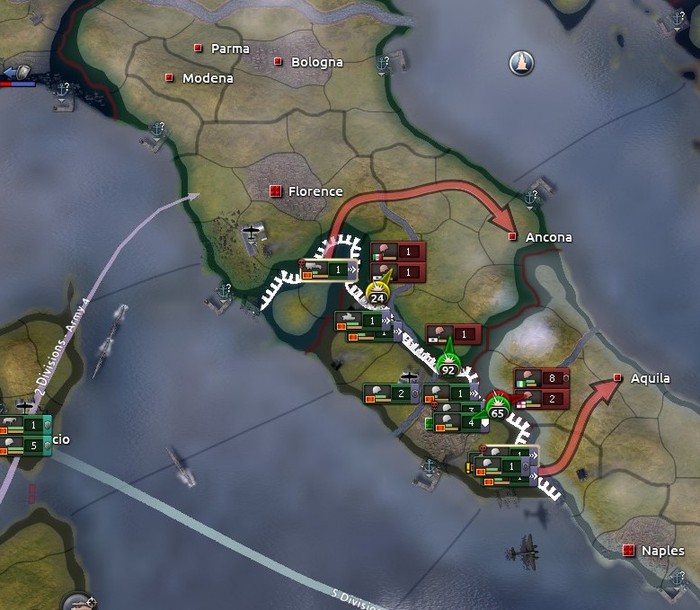
The offensive would be an impressive success, with rapid progress made over the next week as the Iberians captured Florence, then l’Aquila, then Pescara. Thousands of Italians and Palermese were evacuated before the fall of Ancona, but the rest were surrounded and trapped along the Apennine Mountains, sealing their unfortunate fates.
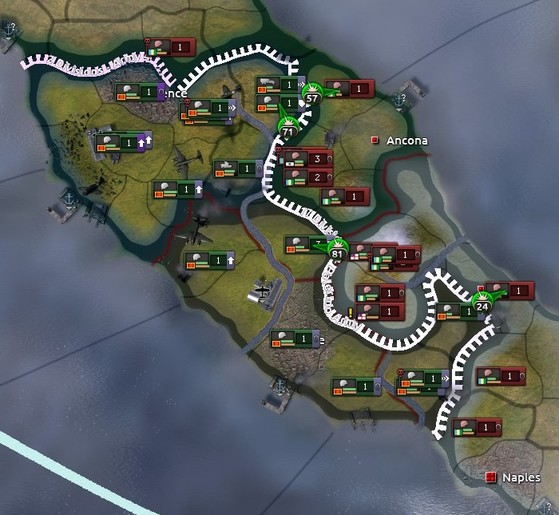
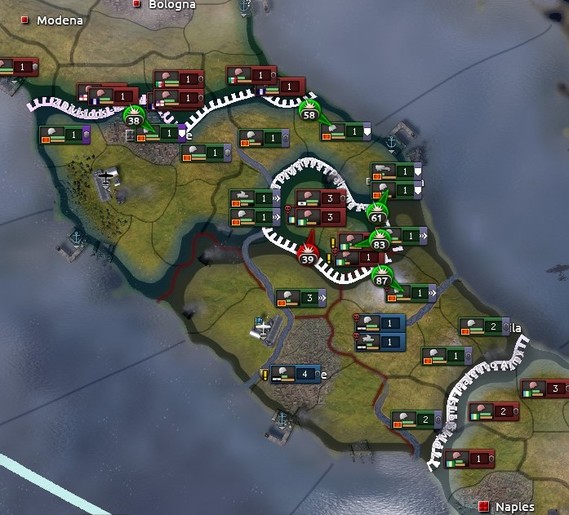
The Supreme Leader of Iberia took full credit for the successful operation, of course, but he was soon distracted by the arrival of a small embassy in Qadis, a small embassy that included some of the most prominent and influential socialist thinkers of the East…
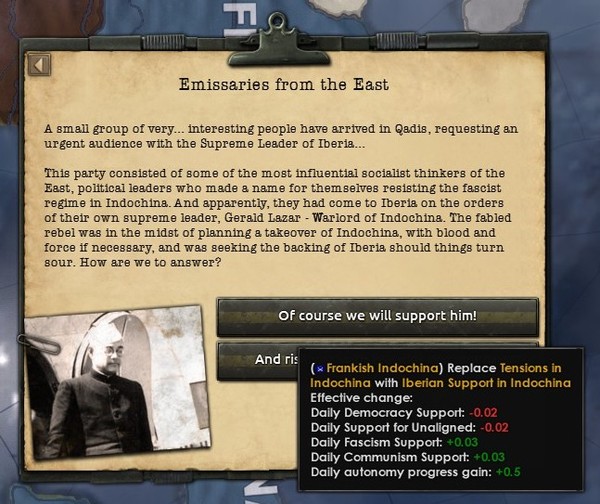
Apparently, the diplomatic mission had been dispatched by Gerald Lazard, the fabled Warlord of Indochina. The war hero-turned-revolutionary had been coordinating an underground anti-fascist movement for years now, and with his efforts about to bear fruit, he reached out to the Supreme Leader of Iberia with the hope of securing support from the Ad Hoc Alliance.
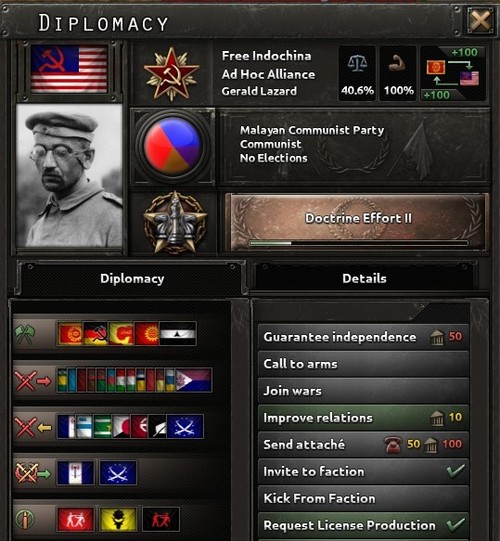
Mizanur was quick to accept, and a few weeks later, the Rising of Indochina had begun.
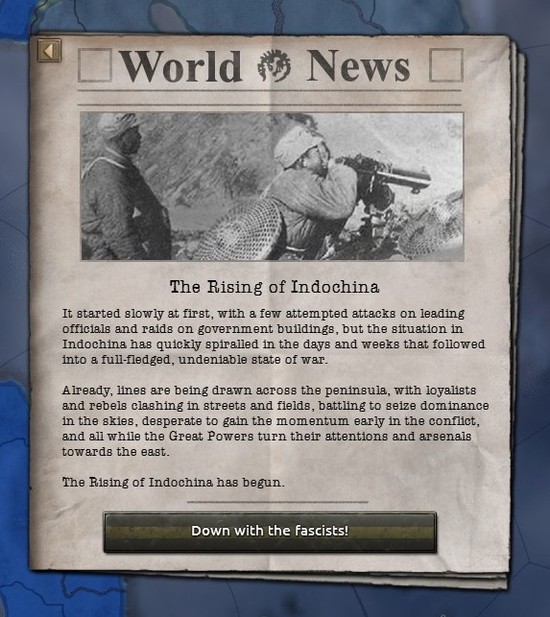
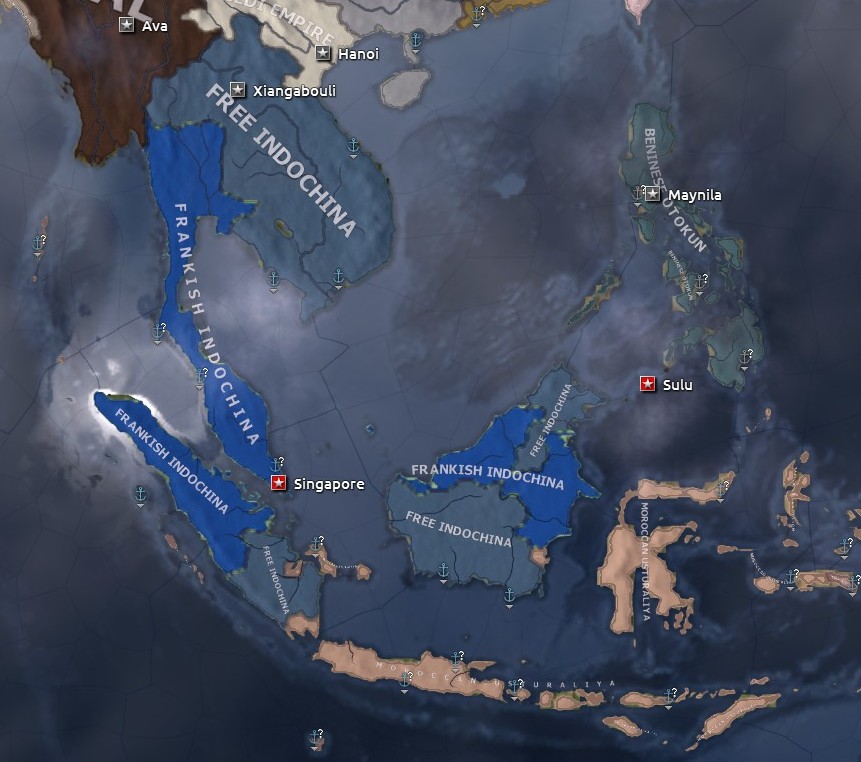
This uprising seemed to spark another wave of wildfires across the East, because it was quickly followed by riots and furore in Japan, where a series of failed offensives and embarrassing defeats had stirred the general public against the fascist regime of Tokyo.
And with financial and material support from an anonymous government abroad, the Popular Uprising was launched in Kyoto, Hiroshima, Kagoshima and the rest of the south, plunging Japan into civil war.
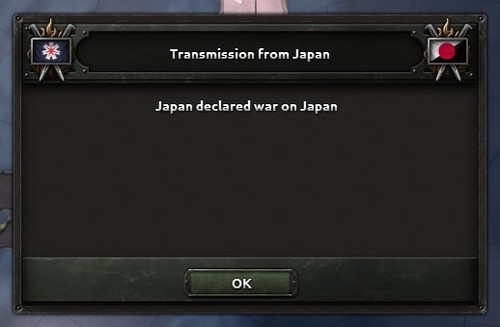
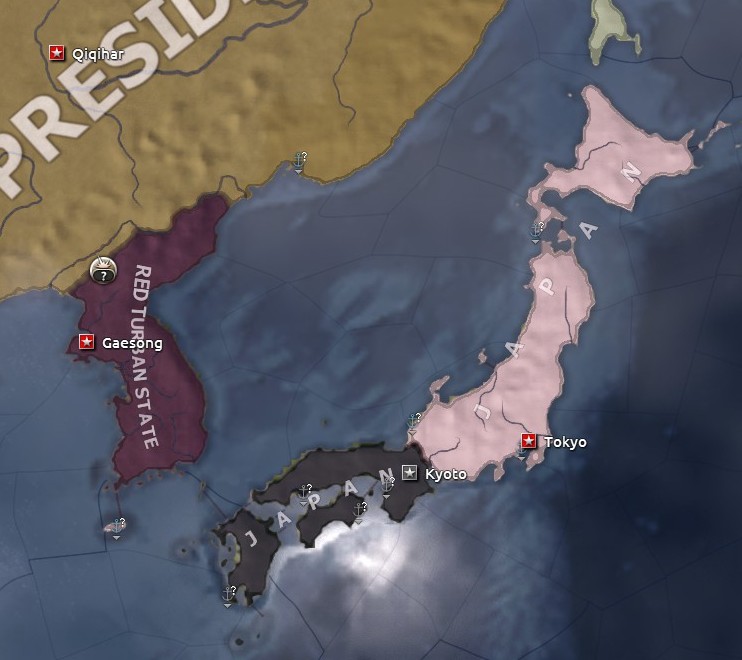
Succeeding this was another momentous declaration, across the humid jungles and unstable volcanoes and sweltering plateaus of Asia, in the extravagant court of the Maharaja of the Bengal…
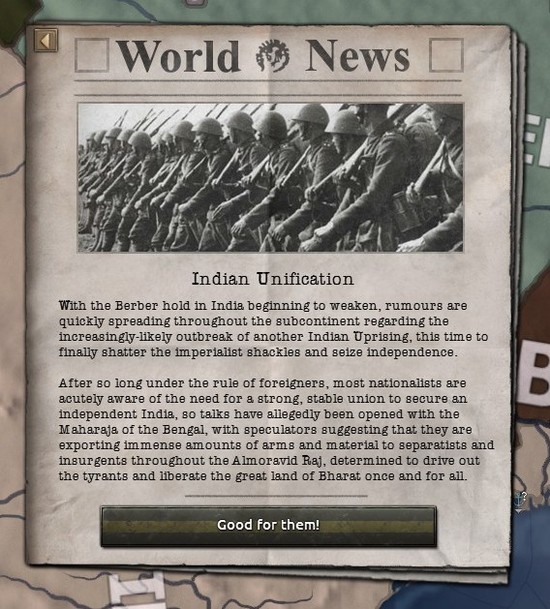
The Almoravid Empire had been on the decline for a long time now, but for the first time in centuries, Morocco was facing a colossal defeat at home, one that they might never recover from. This was the opportunity that countless Indians had been waiting for, stretched across decades of failed rebellions and uprisings, a long and desperate history of futile struggles.
But no longer. This was a declaration of war, and mere hours later, the Bengal invasion of India had begun.
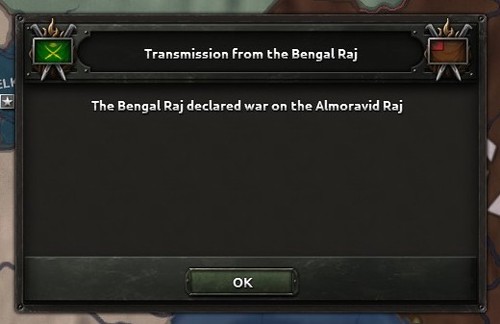
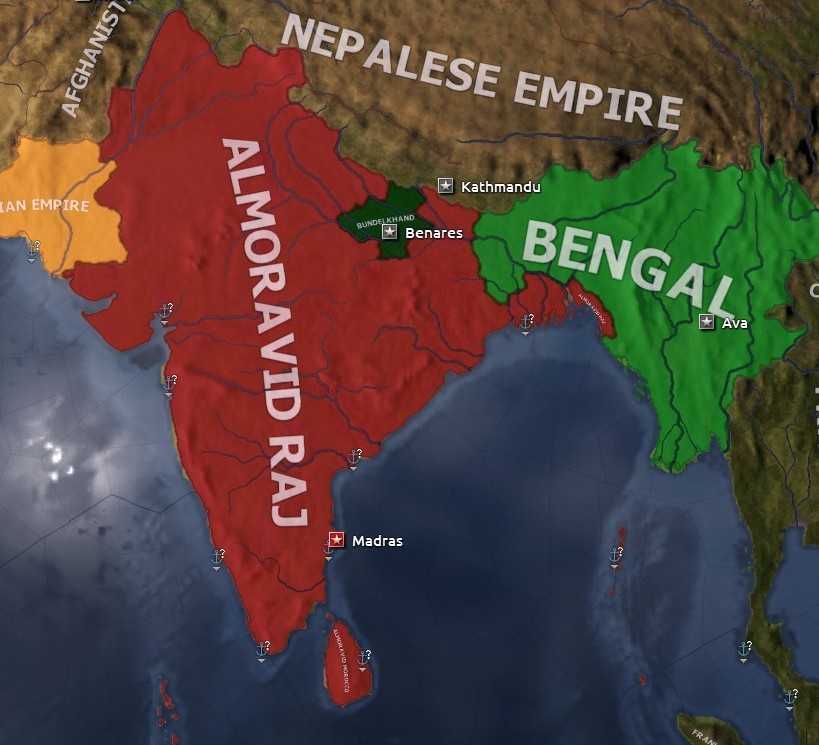
The news would reach Marrakesh very quickly, but this invasion was the least of their concerns, because the once-glorious and blessed capital of the Almoravid Empire was being bombarded by bullets and shells and projectiles.
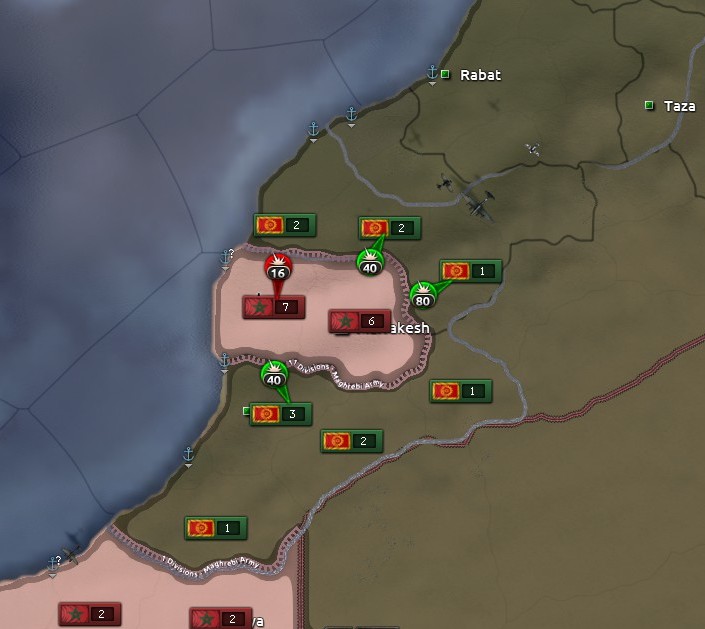
It was the 18th of March, 1940, and the Iberians had reached Marrakesh.
